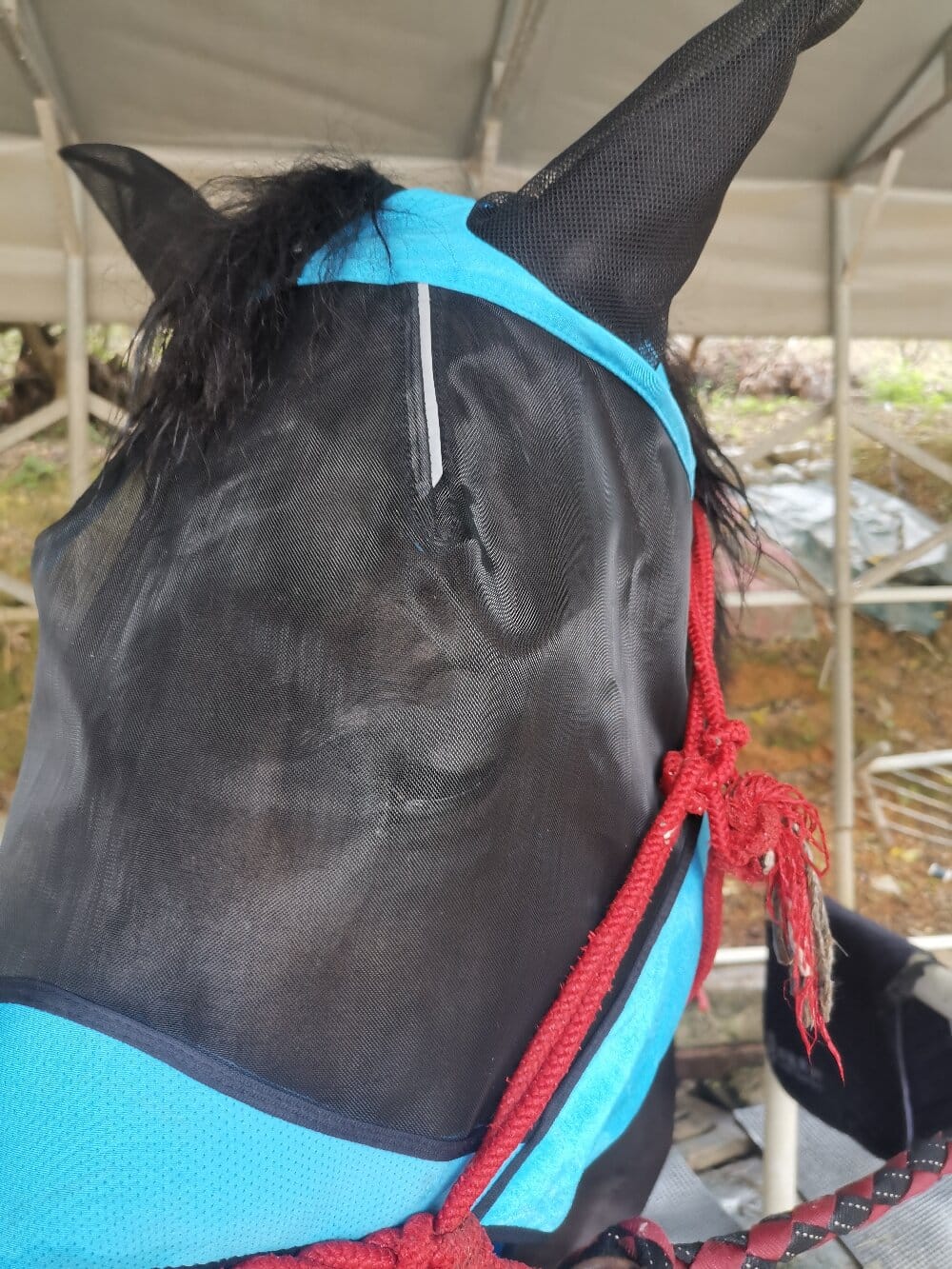A horse fly mask is an essential piece of equine gear designed to protect your horse’s eyes, ears, and face from irritating insects, harmful UV rays, and debris. Whether you own a competitive show horse or a beloved pasture companion, a well-fitted fly mask can significantly improve your horse’s quality of life by reducing stress and preventing infections. But how do you choose the right one? Let’s dive into the data and insights to help you make an informed decision.
Understanding the Benefits of a Horse Fly Mask
Fly masks aren’t just about keeping pests away—they serve multiple purposes that contribute to your horse’s well-being. Here’s what the data tells us:
- Insect Protection: Flies, gnats, and mosquitoes can cause irritation, infections, and even diseases like conjunctivitis. A fly mask acts as a physical barrier.
- UV Protection: Many masks offer UPF-rated fabric to shield sensitive skin and eyes from sun damage, reducing the risk of conditions like squamous cell carcinoma.
- Debris Prevention: Dust, pollen, and windblown particles can irritate your horse’s eyes. A mask with fine mesh helps keep these irritants out.
- Reduced Stress: Constant swatting at flies can make horses anxious. A mask helps them stay calm and focused, especially during training or turnout.
Key Features to Look for in a Horse Fly Mask
Not all fly masks are created equal. Based on equine research and user feedback, here are the most important features to consider:
- Material: Look for breathable, lightweight fabrics like polyester mesh with UV protection.
- Fit: A snug but comfortable fit prevents rubbing and ensures the mask stays in place.
- Coverage: Some masks cover only the eyes, while others extend to the ears and muzzle for full-face protection.
- Durability: Reinforced stitching and tear-resistant materials extend the mask’s lifespan.
- Ease of Cleaning: Machine-washable masks save time and maintain hygiene.
Data-Backed Tips for Choosing the Right Fly Mask
According to equine studies and user reviews, selecting the best fly mask depends on your horse’s specific needs:
- For Pasture Use: Opt for a full-face mask with ear covers and a UV-blocking design.
- For Competition: Choose a sleek, minimal mask that complies with show regulations.
- For Sensitive Horses: Masks with soft linings or adjustable straps prevent chafing.
- For Foals: Smaller, lightweight masks designed for young horses ensure comfort and safety.
Common Misconceptions About Horse Fly Masks
Despite their benefits, some myths persist. Let’s debunk them with facts:
- Myth: “Fly masks are only needed in summer.” Fact: Insects and UV rays can be a problem year-round in some regions.
- Myth: “Horses don’t like wearing them.” Fact: Most horses adapt quickly, especially when the mask fits well.
- Myth: “Any cheap mask will do.” Fact: Poor-quality masks can cause discomfort or fail to provide adequate protection.
Conclusion: A Small Investment for Big Benefits
A horse fly mask is more than just a seasonal accessory—it’s a vital tool for your horse’s health and happiness. By understanding the data behind their design and functionality, you can choose the best option for your equine partner. Whether you prioritize UV protection, insect defense, or comfort, the right mask will keep your horse safe and stress-free. So, take the time to research, measure, and invest in a quality fly mask. Your horse will thank you!

